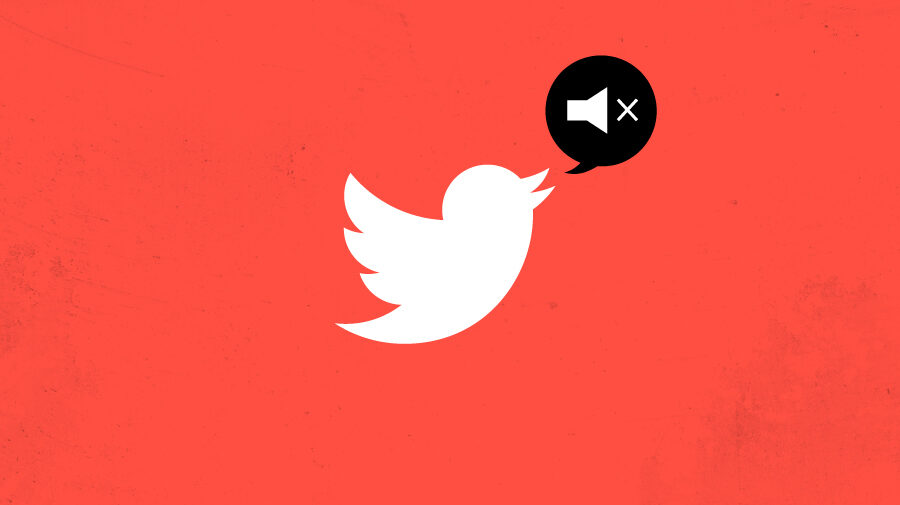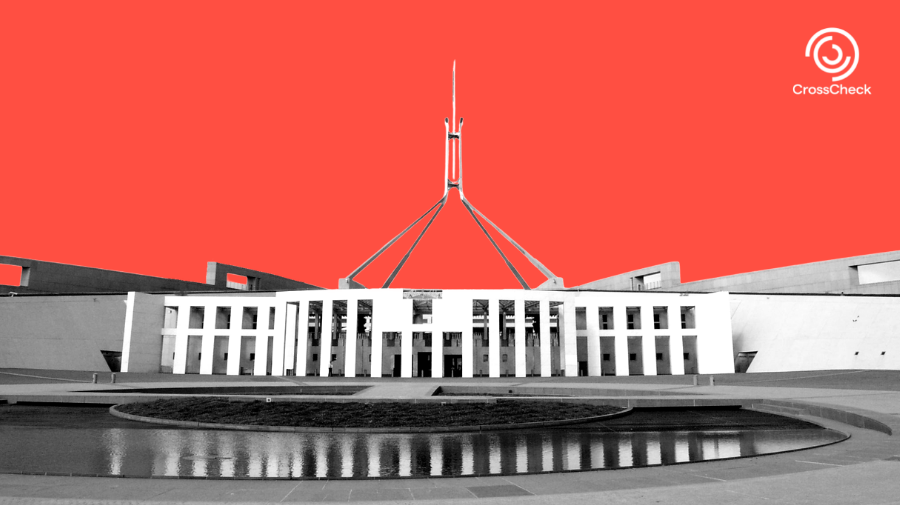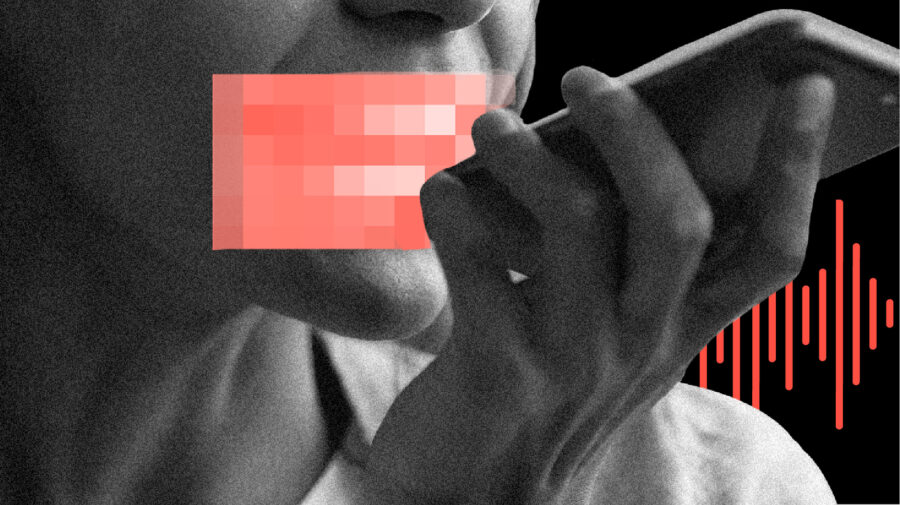Tensions between social media companies and governments are rising — from India to Myanmar to Australia and beyond — leaving the platforms’ users caught in the middle.
In Turkey, a looming showdown between the government of President Recep Tayyip Erdoğan and Twitter is the latest flashpoint.
When Erdoğan’s political party and its allies introduced changes to Turkey’s Internet Law 5651 last year — which they said would limit misinformation, but which critics say looks more like a power grab — they handed tech companies a dilemma: surrender more control over platforms’ content or face fines, potential expulsion and lost revenue. Some big companies have chosen the former. For now, Twitter is the largest holdout, in a dispute that could have major implications for Turkey’s internet ecosystem.
The stakes
Polarization, censorship and lack of trust in state institutions have created fertile ground for disinformation in Turkey.
In 2018, more Turkish people reported being exposed to “stories that are completely made up for political or commercial reasons,” than in any other country surveyed in the Reuters Institute’s Digital News Report.
Social media has provided a counterweight to official disinformation as well as a platform for dissent in Turkey, a country where an estimated 90 percent of print and broadcast media are owned by businesses close to the government. Using platforms such as Twitter, Facebook and Instagram both as a tool for research and to reach audiences, dedicated fact-checking organizations have been operating in Turkey for more than a decade and some have built impressive followings.
But amendments to a Turkish law governing social media, passed in July, could hamper the efforts of fact checkers and further erode Turkey’s troubled information ecosystem.
In its new form, the law requires that social media companies with more than one million daily users in the country appoint local representatives in Turkey. The local representatives must respond to government and user takedown requests within 48 hours, or they could face fines of more than $680,000. The companies must also move Turkish users’ data inside the country.
In December, Google-owned YouTube announced it would move to comply with the law by appointing a legal entity, saying in a statement the move “will not change how YouTube reviews content removal requests.”
A coalition of rights groups urged the company to reconsider, saying the move “could implicate YouTube in human rights violations.”And in January, days before a planned advertising ban was due to take effect, Facebook relented. The company said in a statement that the decision did not change the platform’s community standards or the process for reviewing government requests, adding that “we will withdraw the representative if we face pressure on either.”
British human rights group Article 19, Amnesty International and others warned that Facebook and the other platforms were “in serious danger of becoming an instrument of state censorship.”
Twitter, to date, has demurred, along with Pinterest. Twitter has issued no public statement about the new law and has not appointed a local representative. As a result, it faces increasingly severe penalties.
Non-complying companies were fined a combined $30.4 million in December. And last month, Twitter was hit with an advertising ban. The platform also faces progressive bandwidth throttling that will eventually block access to the site in Turkey.
Twitter in Turkey
There are at least 13 million Twitter users in Turkey, a country of approximately 83 million people, according to the latest figures from Statista.
Many ministers and supporters of Erdoğan’s Justice and Development Party (AKP) maintain a Twitter presence — the president’s personal account has 17.4 million followers — but there is no love lost between Turkey’s ruling party and Twitter.
In 2013, protesters in Istanbul’s Gezi Park used Twitter to rally support and document police repression; Erdoğan, in turn, called the platform “a menace.”
His AKP then attempted to co-opt the platform, first by hiring a 6,000-strong social media team, and later through the use of retweet rings and fake accounts.
Since Twitter began publishing data on legal requests to take down content, Turkey has been among the top countries in requesting takedowns, in some years topping the list, although in the first half of 2020, the latest period for which data was available, a higher number came from Japan, Russia and South Korea.
Twitter has made efforts to buck state control in Turkey. Colin Crowell, then head of global public policy for Twitter, told the Committee to Protect Journalists in August 2018 that the company was “obviously concerned about it to the extent we go to court to challenge it,” referring to Turkey’s demands that content be taken down.
But the courts are rarely an effective mechanism. Fewer than 3% of Twitter’s legal objections were accepted between 2014 and 2017, the platform’s transparency data shows.
In June, when Erdoğan’s son-in-law and then-finance minister, Berat Albayrak, was ridiculed on Twitter, Erdoğan vowed to crack down and new legislation was passed in July.
Speaking in favor of the bill, MP Halil Öztürk of the right-wing nationalist party MHP, which is aligned with Erdoğan’s AKP, said the bill aimed to combat fake accounts and misinformation on social media.
But critics say the move is designed to silence dissent and could worsen the quality of online information available in Turkey.
Turkey’s information ecosystem
Erdoğan’s crackdown on free speech has ranged from the borderline farcical — a doctor was put on trial for comparing Erdoğan to The Lord of the Rings character Gollum — to the severe. At least 133 journalists were arrested and charged after the 2016 coup attempt.
The coup attempt set off a “rigorous witch hunt” with “costly” and “devastating” impact on digital rights in Turkey, argued Asli Telli, a research associate at Germany’s University of Siegen media school and digital rights advocate, in a recent interview with the online publication Ahval.
More than 400,000 websites were blocked in the country by the end of 2019, Turkey’s Freedom of Expression Association reported.
In this restrictive environment, opposition parties have primarily used social media to reach the electorate and some argue this is why these spaces have been more closely legislated.
Telli told First Draft that Turkey’s information ecosystem is increasingly polluted by organized trolling campaigns that interfere with organic conversations by targeting dissenting opinions and flooding online posts with counter-narratives.
In a recent study, the Stanford Internet Observatory’s Cyber Policy Center looked at 7,340 accounts attributed to the youth wing of the AKP party that had been taken down by Twitter. The research identified batches of fabricated personalities and a series of campaigns, including one that targeted opposition parties with smears and spread misinformation about them.
In this environment, “fact checking becomes very tough or almost impossible due to the overflow of contradictory information,” Telli said.
Before last year’s amendments, Law 5651 had already been used to block sites such as Wikipedia, but the latest changes will lead to more websites, blogs and social media accounts coming under excessive control by the government, Telli said.
“This marks a clampdown of free speech as well as a total shrinking of civil society,” she said.
The new law may also force government critics to move away from open social media platforms and onto private, encrypted and ephemeral online spaces, Erkan Saka, head of media studies at Istanbul Bilgi University, told First Draft.
The move may already be underway. The invitation-only social networking audio app Clubhouse has seen a surge in popularity amid protests at Boğazici University.
If critics retreat to closed networks, the range of voices in the public sphere could narrow even further.
“By this legislation they are killing the Twittersphere,” Saka said, adding, “at least they’re trying to.”
A loophole, an opportunity or a trap?
The current dispute between Twitter and Prime Minister Narendra Modi’s government illustrates the risks of opening a staffed office in-country, as local Twitter employees face the threat of imprisonment.
Google and Facebook have taken a step toward complying with the new law by establishing legal entities, not people, as local representatives, in what they may see as a loophole that meets the terms of the new law without the risk of employing any local staff.
But these steps might not be enough to satisfy the government.
“They’re all playing a game and I think the likes of Google and Facebook, they’re seeing this as a loophole, I don’t believe it’s a loophole; it could be a trap,” said law professor and cyber rights expert Yaman Akdeniz of Istanbul Bilgi University.
“[The] government is very clear in terms [of] what they want. The question is just what happens when they don’t get what they want and how hard they will hit these companies.”
The new internet regulations in Turkey highlight a trend of authoritarian governments co-opting the language of limiting disinformation to instead crack down on free speech.
Disinformation laws that are too broad or vague “risk chilling legitimate speech and can be used selectively or indiscriminately by governments to encourage or require private companies to police speech in ways that can harm free expression and limit public debate,” Rasmus Kleis Nielsen and MacKenzie F. Common of the Reuters Institute for the Study of Journalism at the University of Oxford argue.
What’s next
A challenge to the new social media law has been lodged with Turkey’s Constitutional Court.
But the avenues to challenge the ruling party may continue to shrink; less than four years after a 2017 referendum gave him wide-ranging powers, Erdoğan called earlier this month for a new constitution that could further expand his powers.
Twitter still has not indicated how it will proceed in Turkey; the company was contacted for this report, but declined to comment.
In recent weeks, the platform has again become a focal point of debate amid a protest at Boğazici University by students claiming Erdoğan was interfering in the institution. A university student was arrested this month after allegedly tweeting in support of the demonstrators.
And two tweets by Turkish Interior Minister Süleyman Soylu, in which he referred to the protesters as LGBT “deviants,” were labeled by Twitter as violating hateful content rules.
But Soylu, identified as a potential successor to Erdoğan, has struck a defiant tone, suggesting that Twitter is no longer the best platform for Turkish users, describing it as a “toy of imperialism.”
After almost a decade of hostilities between Turkey’s ruling party and Twitter, the government’s efforts to exert greater control illustrate the fine line between getting control of disinformation and making it worse by hampering free expression.
Stay up to date with First Draft’s work by becoming a subscriber and following us on Facebook and Twitter.






